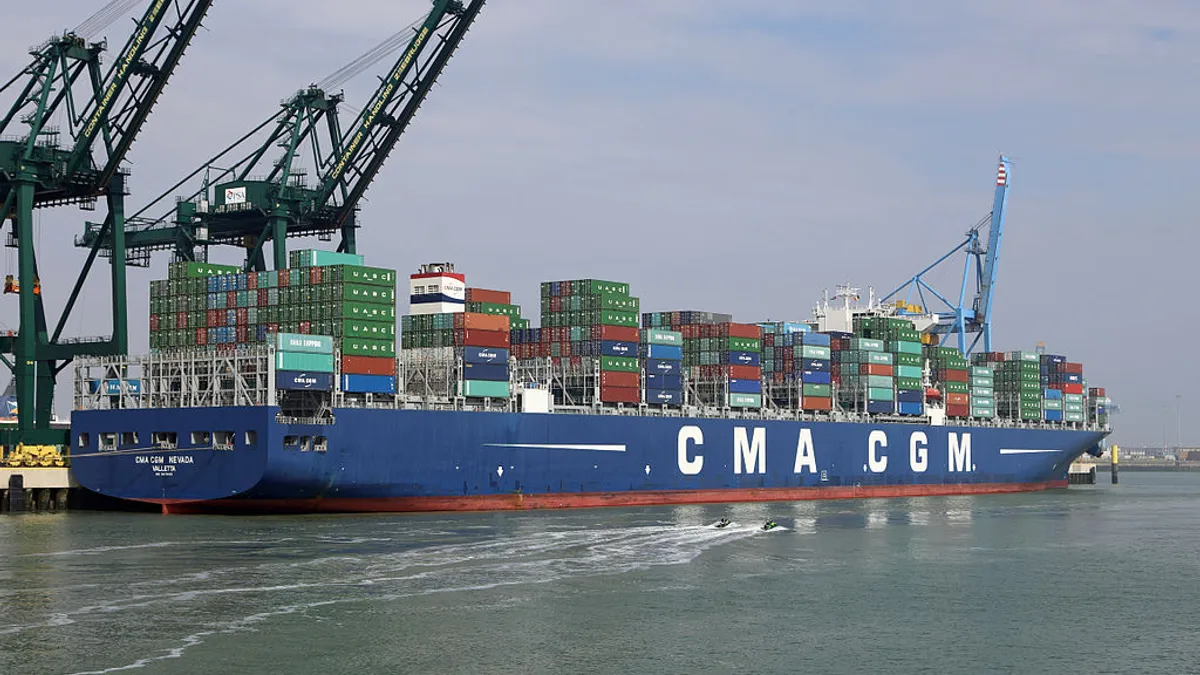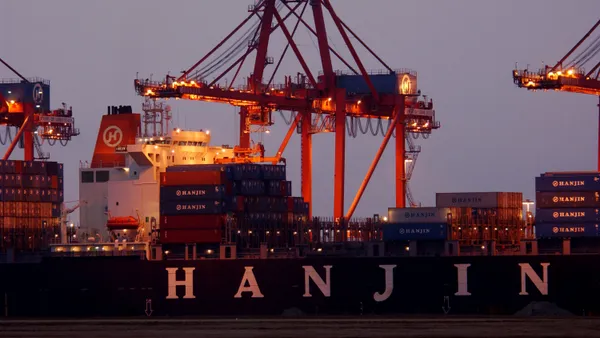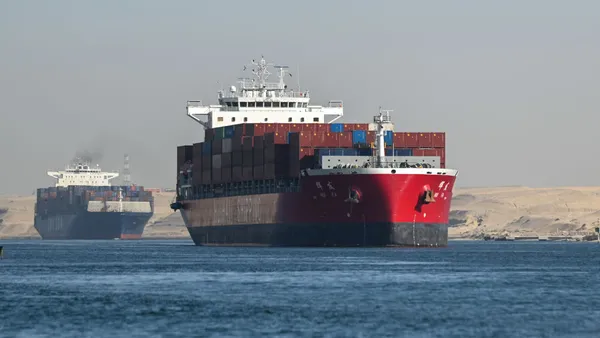UPDATE: July 10, 2018: Hapag-Lloyd CEO Rolf Habben Jansen said in a statement, "we do not see major takeovers in the industry," according to Reuters. An executive from the German carrier told Splash, "there is no substance in the rumors."
Dive Brief:
- CMA CGM reportedly approached Hapag-Lloyd about a possible merger, sources told Reuters. A spokesperson for CMA CGM declined to comment.
- The sources told Reuters Hapag-Lloyd's major shareholders rejected the merger offer, citing a desire for the company to remain in Germany and a lack of apparent benefit for Hapag-Lloyd's shareholders.
- If successful, the merger would create the largest container carrier in the world.
Dive Insight:
Ocean carriers have faced rocky seas in recent years, from overcapacity to low rates to bankruptcies, prompting a wave of consolidation in the industry.
Just one year ago, Drewry Shipping Consultants predicted the "big wave" of ocean carrier consolidation was over, with COSCO-OOCL likely the last feasible takeover in the market.
Now, CMA CGM is reportedly making another splash in consolidation, with a proposed takeover of Hapag-Lloyd. The French carrier is the third largest line and holds 11.8% of the total market share. Hapag-Lloyd is fifth and holds 7.2%. Combined, the two lines would carry 19% of market share — more than leading carrier Maersk Line's 18% share.
CMA CGM has been busy with acquisitions, buying European intra-regional provider Containerships in June and acquiring 25% stake in CEVA logistics in April.
While this latest rumored merger is far from finalized, the possibility of further consolidation among carriers could raise concern for shippers.
The recent series of mergers among ocean carriers came with a large dose of side effects. Shippers noted a deterioration in satisfaction levels in ocean carrier service, saying they were dissatisfied with reliability of bookings and transit times. Ports faced congestion and delays as they adjusted operations to accommodate for new alliances. Some shippers even looked to rail as an alternative.
For carriers, however, the only choice to survive may be to consolidate. After a spike in the beginning of 2018, ocean rates have been falling, to levels where rates are well below what carriers need just to break even.















